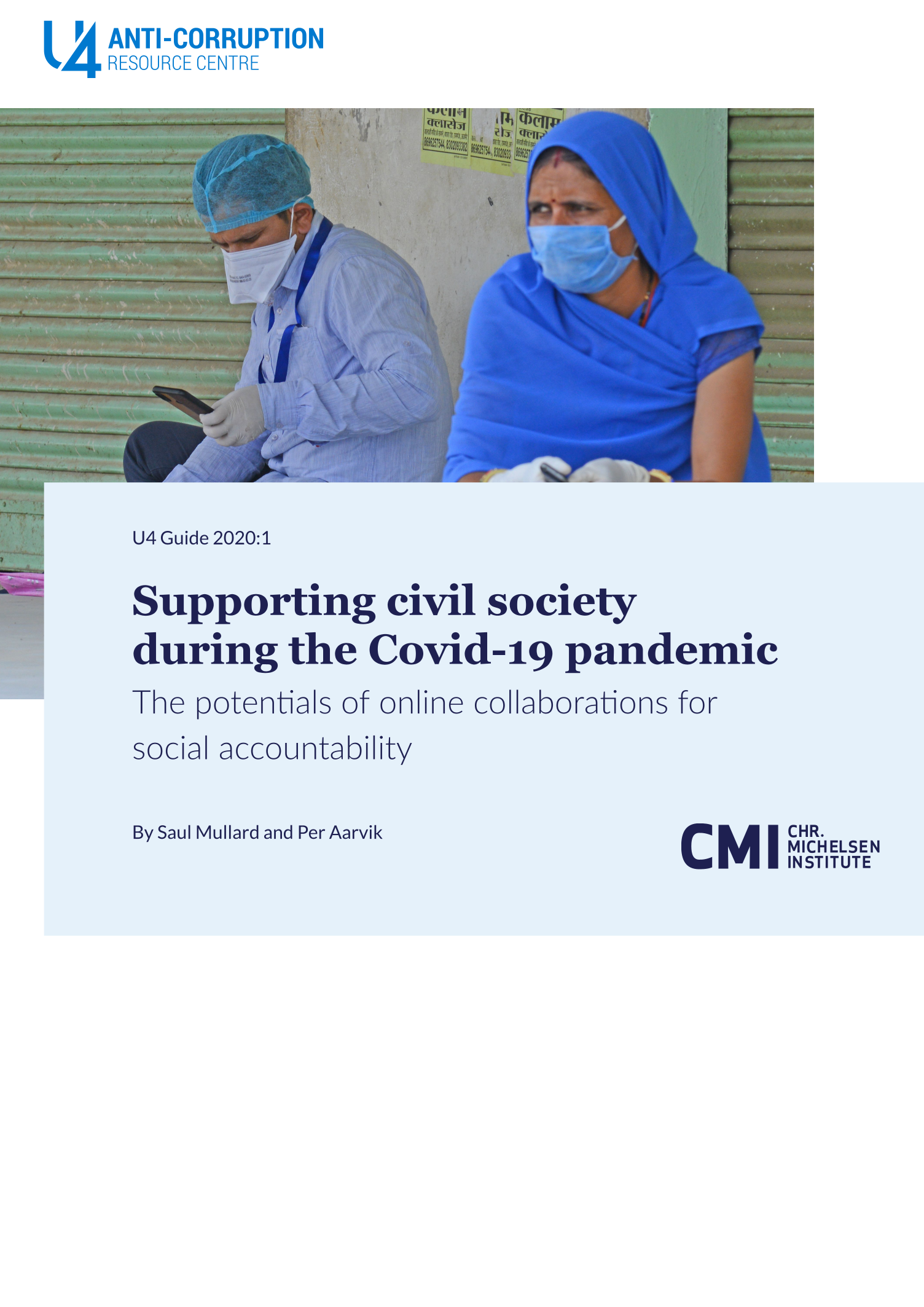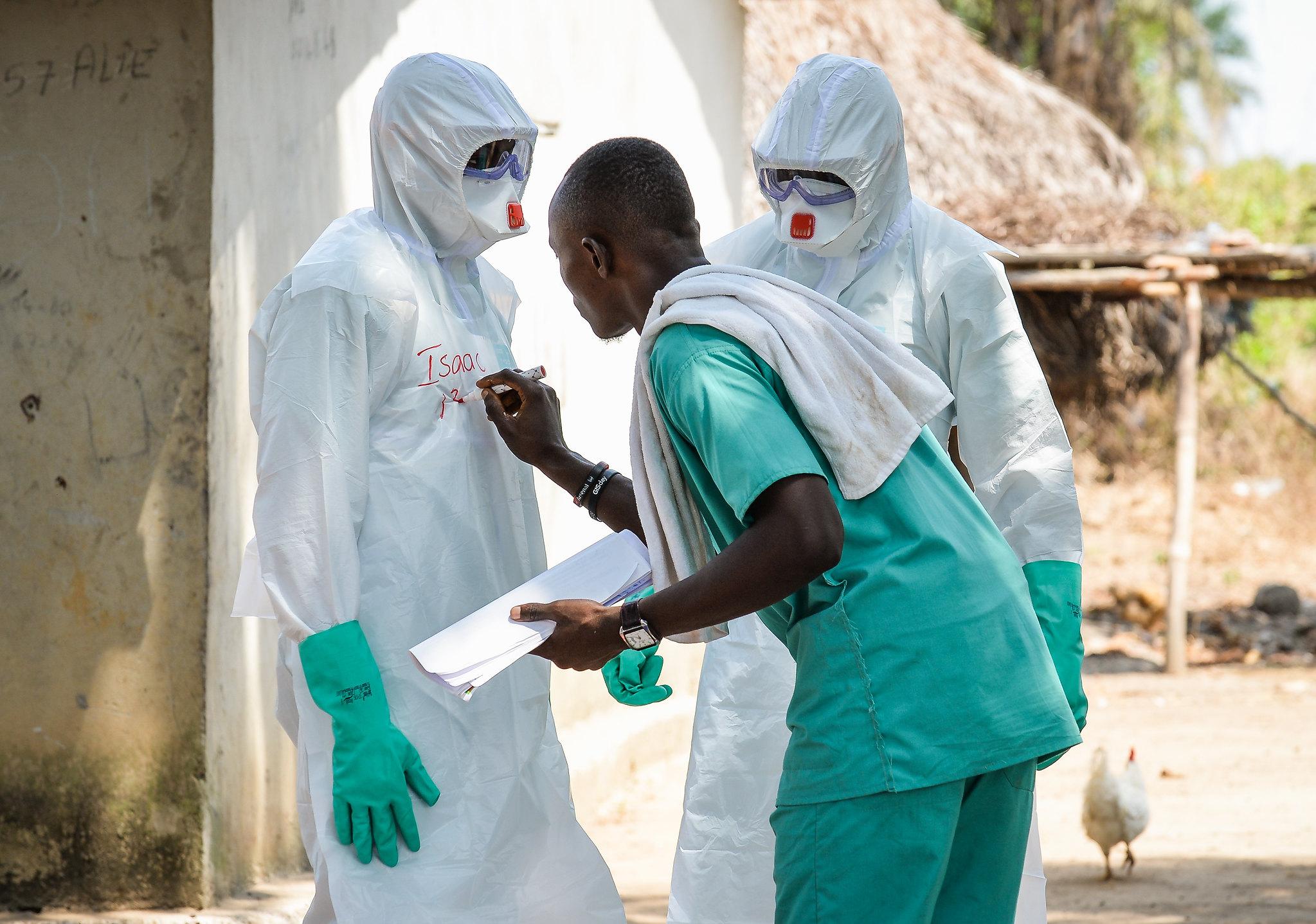Main points
- There are significant corruptions risk during times of crisis. Bottom-up accountability approaches are crucial for ensuring funds allocated for the pandemic reach their intended destination.
- It is tempting to view the current lockdowns and restriction of movement as a global paralysis. However, whilst challenging for civil society, the current situation may stimulate creativity and offer new opportunities for it as a watchdog.
- The present urge to participate, to share information and to organise assistance could be channelled into constructive support and alternative forms of civic engagement to combat corruption.
- Development practitioners can support civil society by drawing upon the many existing – but untapped – resources to mobilise digital civic engagement. By establishing digital accountability networks, there is potential to increase awareness of corruption risks, build new alliances and promote accountability initiatives.
- Online collaborations have the capability to contribute to anti-corruption initiatives. However, limitations and challenges faced by some countries include: poor technology infrastructures, lack of access to mobile devices or the skills to communicate, cyber security issues, misuse of data, and a reluctance to engage at a time when health is at risk.



